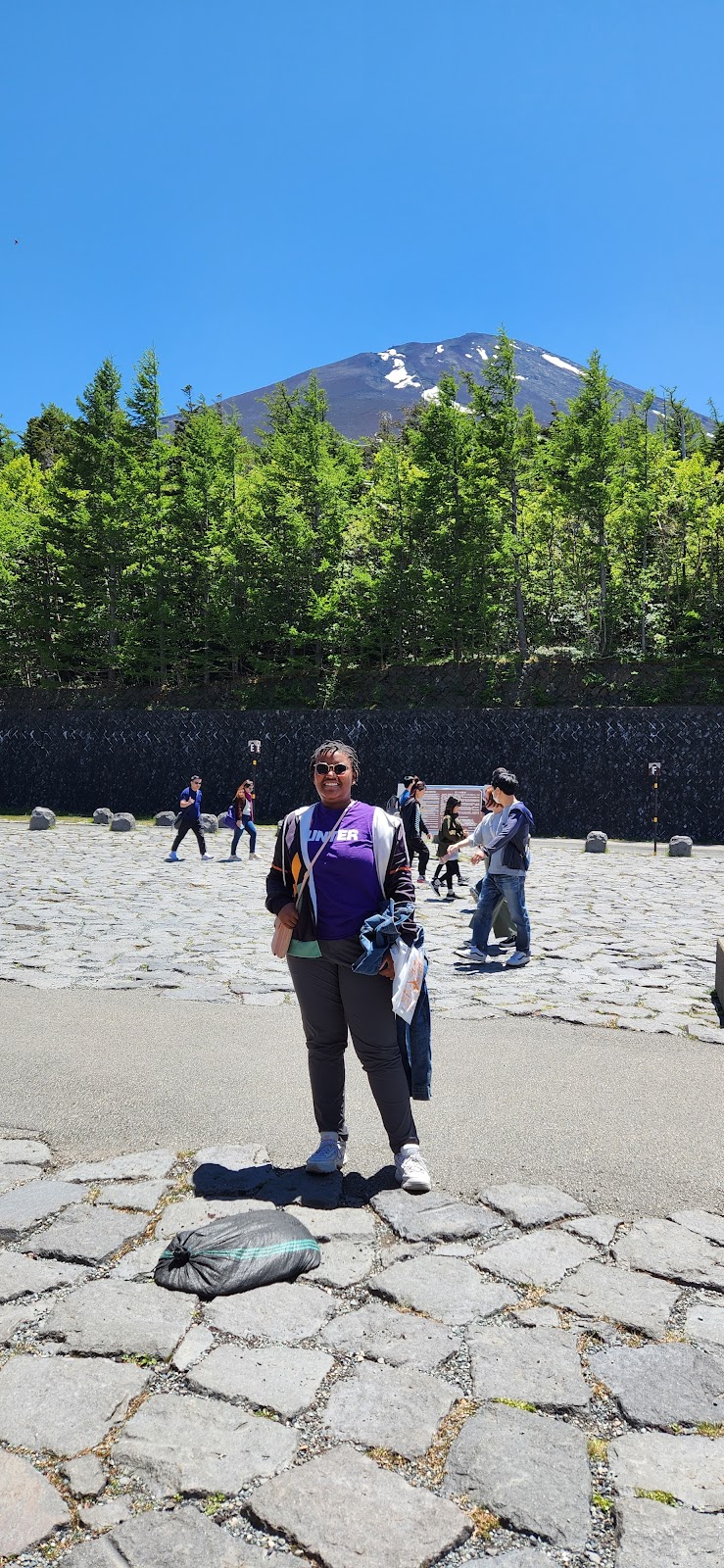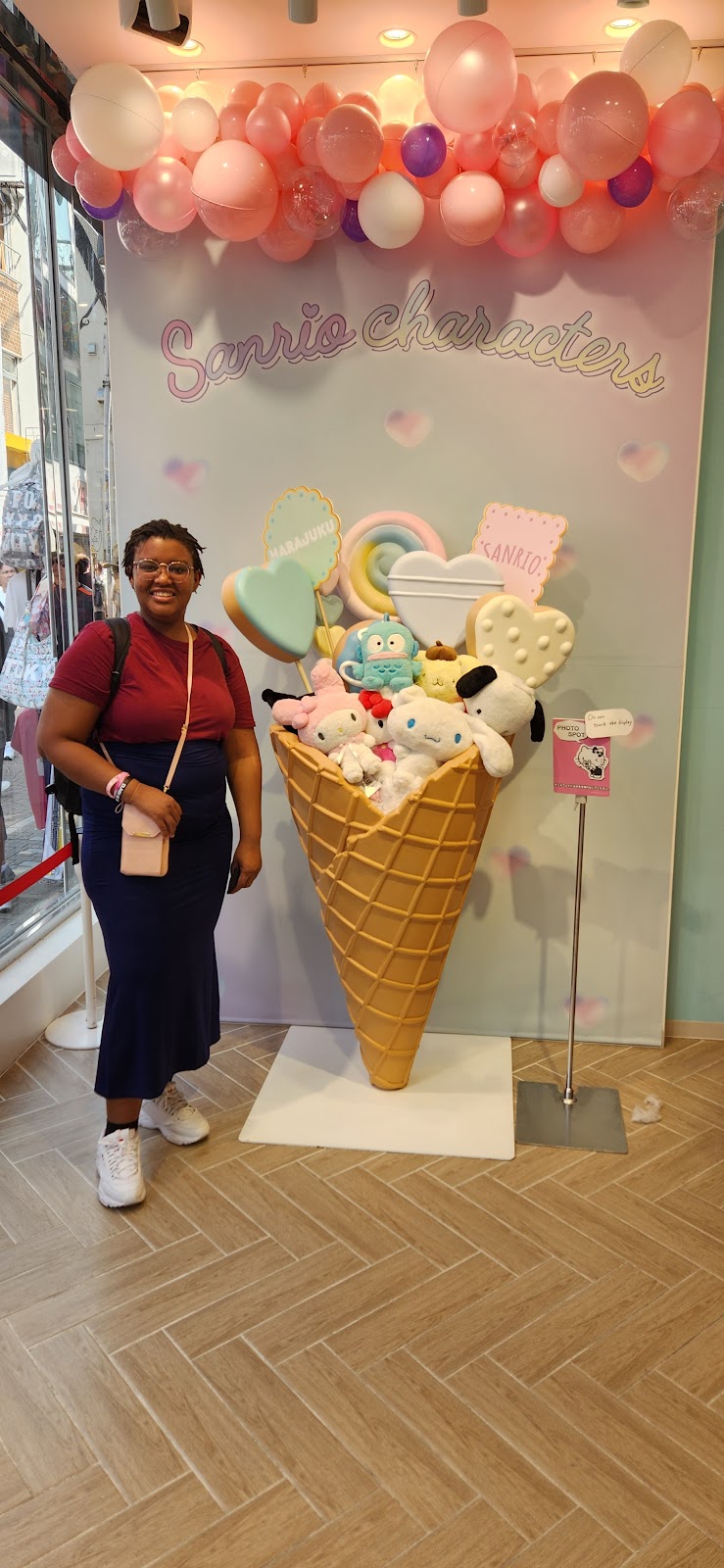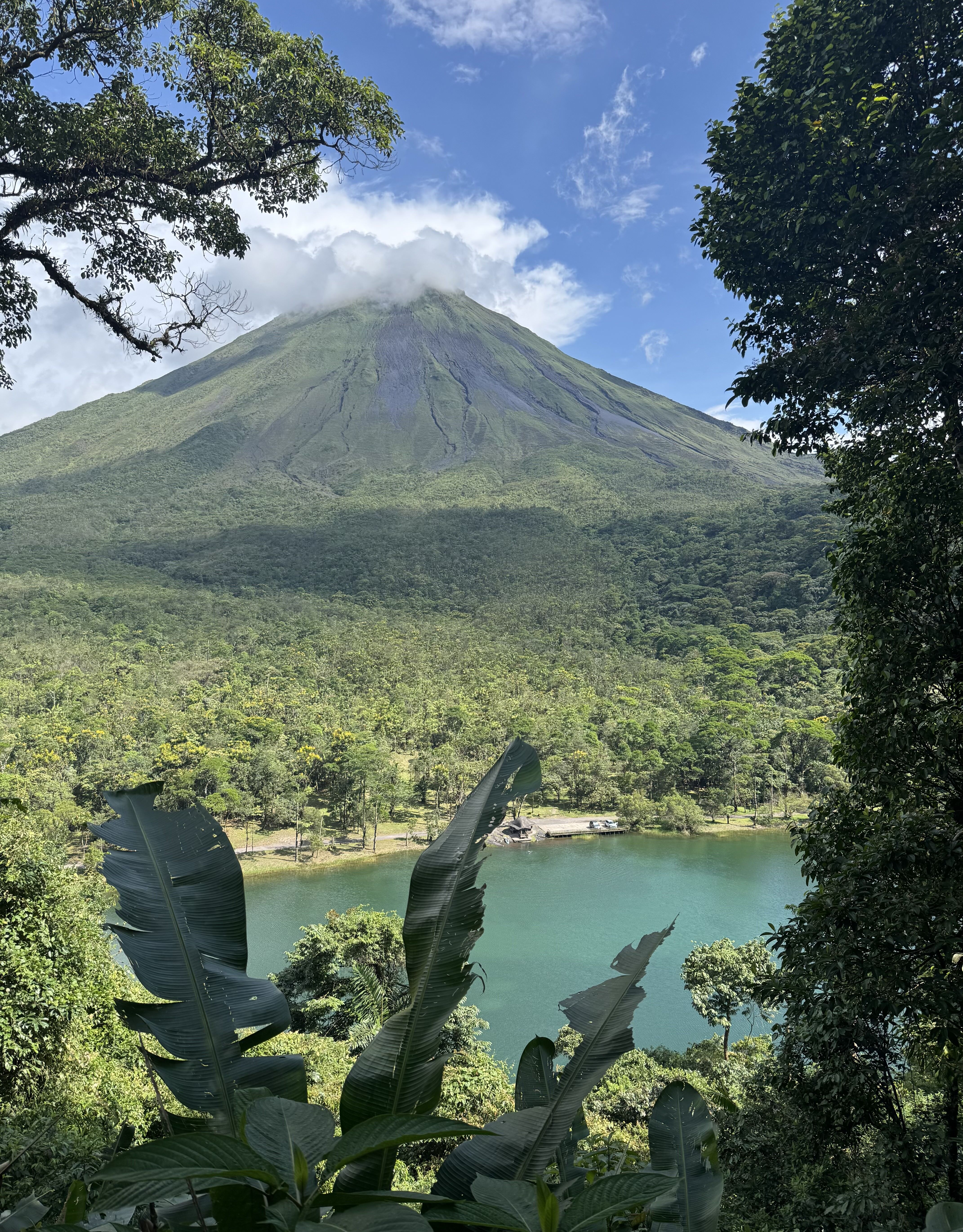Student Blogger Bio:
Sarane James is a senior at the Macaulay Honors College at CUNY Hunter College. She is a creative writing major with a minor in Japanese culture. Her professional work is centered around working with teachers to create equitable computer science curricula, especially for bi/multilingual students. She is a staunch believer in the power of stories to help us further understand, connect with, and accept each other. She loves to read and write fantasy stories because dragons are undeniably cool, but also loves the way they parallel and highlight certain aspects of the world we live in and the people who live in it.
To some doctors, sickle cell means living in a bubble. No gym, no swimming, and someone save me if I even thought about going up a mountain. Well, as someone with breathtaking photos from Mount Fuji’s Fifth Station, I can confidently tell you that I did not die instantly upon changing elevation.
That doesn’t mean traveling with chronic illness is easy. For those nervous about it, here are three important steps to make sure it goes smoothly, based on my experience studying abroad in Tokyo.
Prepare to Travel in Advance
In the few months before I left for Japan, my mom became obsessed with this show called How to Catch a Smuggler. In it, airport security officers all across the world prevent smuggling of drugs, money, food, and other goods into their countries, protecting against both the drug trade and invasive species.
My one goal when it came to traveling was to be prepared without ending up on How To Catch a Smuggler.
First, it was important to be in contact with my doctors and specialists. I set up appointments to make sure I was feeling the best I could be, which included making sure I had new prescriptions for all my medications; enough to last the duration of my trip. That way, I wouldn’t have to risk trying to get them filled in a foreign country where I barely spoke the language.
It was also important to find out what Japan’s import laws were, since they vary across countries. What is legal in your home country might be totally outlawed elsewhere. Japan has a total ban on all stimulants, meaning my ADHD medication was highly illegal. Luckily for me, I made an appointment with my psychiatrist well in advance, which allowed me to trial run a new, legal medication about a month before I had to leave. Because I prepared in advance, I wasn’t left with the choice of either trying out a new medication while studying halfway across the world, or going without it altogether.
Preparing ahead of time also gave me time to figure out what paperwork I needed to submit. Japan has specific rules around traveling with medication, meaning I needed to figure out what forms to fill out and how to submit them while allowing enough time for them to be approved. I also needed copies of my prescriptions as documentation. Knowing what I needed and gathering all of it took time and coordination, which would have been stressful if not planned in advance.

Pace Yourself While Abroad
Most of the people in my study abroad cohort had a bucket list for their first stay in Japan. Some were more ambitious than others. Since our program was split into three two week long sessions, those of us who were staying for more than one got three day weekends while the newcomers were doing orientation. Plenty of people sought to maximize this time by traveling outside of Tokyo and exploring other parts of Japan.
I maximized my weekends by staying in my hotel room.
Okay, so I wasn't holed up in my room all weekend every weekend. I traveled to Hakone to see Mt. Fuji (which was beautiful, by the way. Have I mentioned that?), spent an entire day in Harajuku, or took a quick trip to Ikebukuro, which was about a 10 minute train ride from my hotel. Tokyo is such a huge, bustling city that it would provide more things to do than I could even fit in six weeks.
I was also listening to my body. Making sure I could continue to enjoy my trip meant resting when I needed to, even if everyone else was scattering across the country.
Even so, Tokyo is a lot of walking. With such narrow roads, most places can’t be reached by bus, meaning long walks between the train station and both my host college and my hotel room. Making sure I could still get to class was just as important as making sure I could experience as much of Japan as possible.




